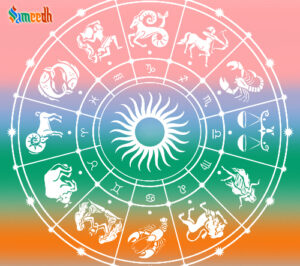Vedic astrology, also known as Hindu astrology, is an ancient system of astrology that has its roots in the Vedas, which are ancient sacred texts of India. Jyotish means “science of light,” and it is considered a sacred and guiding science that offers insights into various aspects of human life, destiny, and the natural world.

Rishi Garga developed our world of Astrology that we cherish and read about today. He was a pioneer in many fields of sciences and gave us a better understanding of the physical and spiritual world. Here are key elements of Hindu astrology:
- Zodiac Signs (Rashis): The Hindu zodiac/rashis consists of 12 signs, each associated with a specific portion of the ecliptic. The signs are Aries, Taurus, Gemini, Cancer, Leo, Virgo, Libra, Scorpio, Sagittarius, Capricorn, Aquarius, and Pisces.
- Planets (Grahas): The Vedic system recognizes seven primary planets, known as “Navagrahas.” These are Sun (Surya), Moon (Chandra), Mars (Mangal), Mercury (Budha), Jupiter (Guru), Venus (Shukra), and Saturn (Shani). In addition to these, Rahu and Ketu, the lunar nodes, are also considered as significant points in Vedic astrology.
- Houses (Bhavas): The birth chart, or Kundli, is divided into 12 houses, each representing different aspects of life, such as wealth, family, career, relationships, and spirituality.
- Nakshatras: The lunar mansions or Nakshatras are 27 divisions of the sky, each associated with a specific star or group of stars. The Nakshatras play a crucial role in determining the temperament and characteristics of an individual.
- Dasha System: One of the unique features of Vedic astrology is the Dasha system, which divides a person’s life into major and minor planetary periods. The Dasha system helps astrologers predict the timing of events and understand the influence of specific planets at different stages of life.
- Yogas: Yogas are planetary combinations that indicate specific influences or results in a person’s life. There are numerous yogas, each with its own significance.
- Remedial Measures: Vedic astrology also suggests various remedial measures to mitigate the impact of negative planetary influences or enhance positive ones. These measures can include wearing astrological gemstones, performing specific rituals, chanting mantras, and charitable acts.
- Muhurt: Muhurta is the selection of auspicious timings for various activities such as weddings, ceremonies, and important life events based on the planetary positions.
It’s important to note that while many people find guidance and insight in Vedic astrology, it is a complex system that requires expertise and careful interpretation. Consulting with a qualified Vedic astrologer can provide personalized insights based on an individual’s birth chart. Additionally, interpretations and practices may vary among different astrologers and traditions within Hindu astrology.